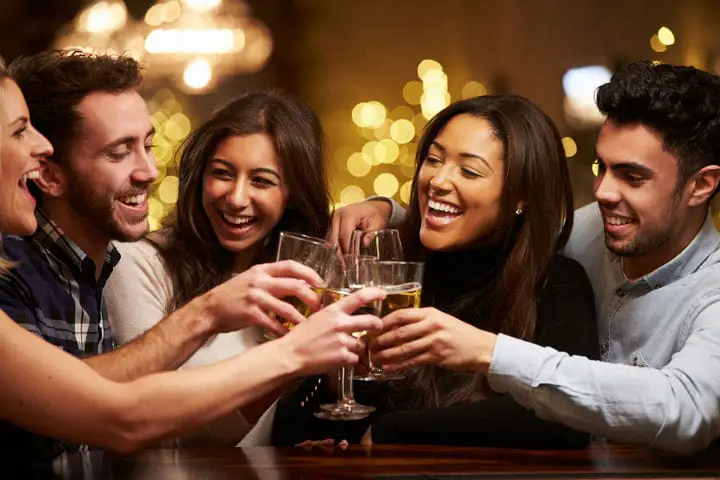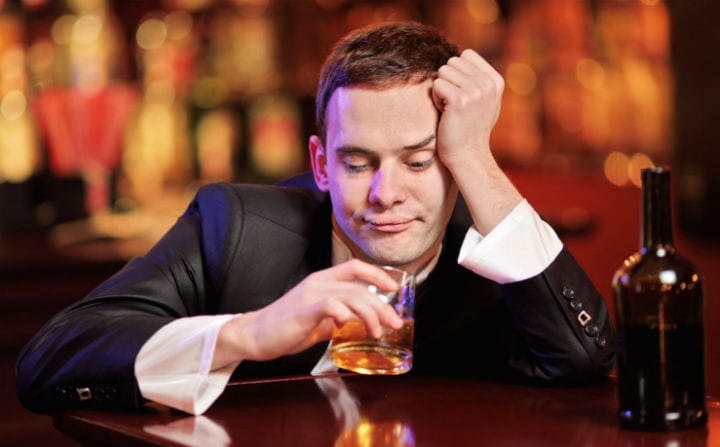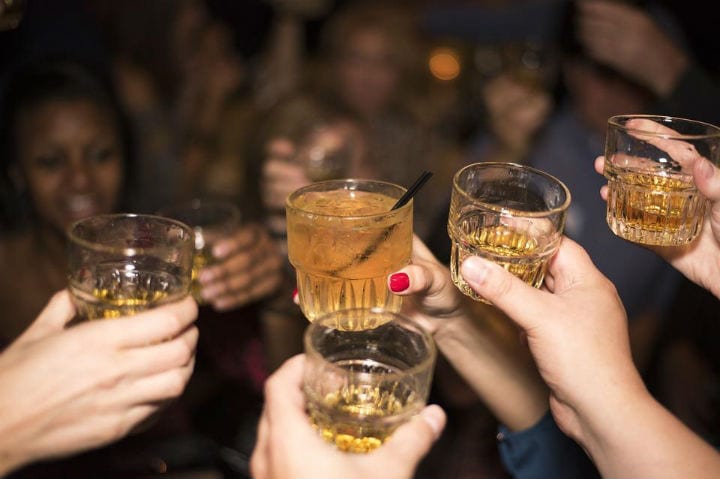Your drunk self is your truest self, according to science
Science

Why do we think alcohol makes us act differently, anyway?
We’ve all had those moments, thinking back to a drunken night with our friends, wondering who that person was that seemed to take over our bodies when we had a few too many shots. Well, according to science, that person might be a lot closer to our true selves than we may care to admit.
Firstly, it’s basic social conditioning. We’ve been told all our lives that alcohol changes us and makes us act differently than we normally would, so, of course, we assume that it’s going to do just that. Secondly, we might be using alcohol as a bit of a scapegoat. Let’s be real: when you see a video of you dancing on a table and trying to sing along to whatever song the bar was playing, you want to be able to blame something other than your own poor decision-making (and sometimes, your friends daring you to do it just isn’t good enough). Alcohol’s the perfect thing to blame!
According to science, nope, it doesn’t. One study published in Clinical Psychological Science found that, contrary to popular belief (and contrary to what we’re probably all hoping to hear right about now), alcohol doesn’t actually have the power to change your personality. So all those times that you woke up to embarrassing photos and videos and tried to blame it on whatever you were drinking the night before? According to the study, that’s all on you.

Come on, it has to affect us somehow
Supercall
The study compared behavior between drunk people and their sober friends, asking participants in each group to rank their own feelings of personality changes as well as changes they perceived in one another. While the drinking participants rated themselves to have changed drastically over the course of their drinking, their sober friends did not perceive any significant changes in their personalities, despite their alcohol levels.
The one thing that alcohol does seem to have an impact on, at least in terms of our personality, is our extroversion levels. Although all the other aspects of our personality remain the same, studies do show that we become slightly more extraverted after we’ve been drinking. This change is perceivable by those around us, so we know it’s not just something we’re making up to account for how much we overshare after a night of drinking.

UPI
But even that, too, may have some aspects of social conditioning, and less to do with the biological impact that alcohol is having on our bodies. One study, discussed by a magazine from Ashford University, found that if people were given a placebo drink that they thought was alcoholic, they started acting more extroverted (as well as exhibiting whatever other traits they think they have when they’re drunk), even where there was no alcohol present, just because we’re expected to act that way. So while alcohol does make us more extroverted, drunk-you is mostly still just you being a less-inhibited version of yourself. But it’s still you.
So, our drunk selves really are our truest selves?
Alcohol isn’t actually changing who we are, or how we act when we drink (at least, not that much). Which means that, when we go out drinking, that version of ourselves that we and our friends see is still just us. A slightly more extroverted, less inhibited version of us. And when we’re less inhibited by social norms, we tend to let our real selves come out. So, however much we might not want to admit it, our drunk self is probably our truest self, or at least pretty close to it.